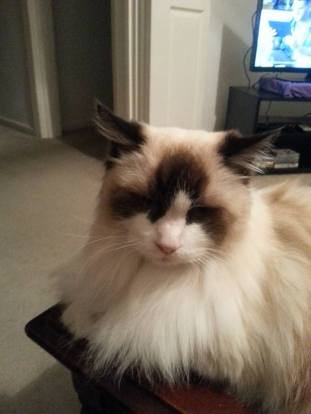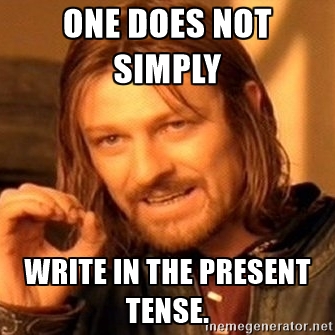
I’ve off-line for a while, at least as far as my blog is concerned. This is because of a number of reasons, the most memorable of which, for me, was the eye surgery I had back in April.
I have suffered from glaucoma for years now. I even have congenitally deformed eyeballs, which hasn’t helped. They aren’t quite spherical, which causes focus problems. I’ve worn glasses since I was 17. In March this year my ophthalmologist suggested I have cataract surgery and at the same time get drainage stents inserted to deal with the glaucoma.
Yes, that is my right eye in the picture above. And yes, it is scary. That’s how my eyes look, and have looked for years now. The bloodshot effect is caused by the glaucoma medication. I’m on three different eye drops for that. I use them three times a day and will do so for at least another month until it can be determined if my stents are working properly. I will then, hopefully, be able to go of the medication and my eyes should return to normal.
As for the cataracts, they are gone and artificial lenses have been inserted. That was fun an experience.
The surgery consisted of two operations (one for each eye) two weeks apart. The old lenses, the ones I was born with, were destroyed using a sonic lance rather similar, I guess, to Dr Who’s sonic screwdriver, except that it had to be actually inserted into my eye to break up the lens. The bits were then sucked out by a vacuum pump (I’m not kidding here) that was also inserted into my eye. The new lens was then put in place and the stents inserted in the bottom of each eye in a part called the trebecular mesh.
Naturally, I was under anaesthetic during these operations, which only took about twenty minutes each. The first one was fine. Although the anaesthetics were the “twilight” kind (which means I remained conscious during the operation, not that I fell in love with a sparkly non-vampire) I have no memory of the first operation. The anaesthetist introduced himself and said he would knock me out completely for about five minutes during which he would insert a needle under my eye to deliver the rest of the knock-out drops that would numb my head. That was fine by me, since I had no desire to witness (at the closest possible quarters) that part of the proceedings. He inserted a catheter into my arm and the next thing I remember was waking up in recovery. I have to this day no memory of the operation itself, or even being wheeled into or out of the theatre. My doctor said later that I was fully conscious, said hello the surgical team and followed instructions well. But the actual operation itself (mercifully) is a complete blank. Such is the nature of twilight anaesthetic.
Not so for the second time around, the operation on my left eye. I woke up during that one.
Strictly speaking, I was “awake” the whole time. But I have a memory of the last few minutes. The last thing I remembered the anaesthetist delivered the initial drug, while we talked about Canada for some reason. Then I became aware of being on the operating table. I couldn’t see anything: my right eye was closed and my left, the one being operated on, “saw” some weird things. It was like looking at a white sheet of paper over which someone had smeared orange marmalade. I know that sound bizarre, but that’s what I saw. I became aware of things “moving” behind the whiteness. I suppose those were the instruments inserted in my eye at the time. I could hear the surgeon talking. He asked me to move my head slightly to the left, which I did.
I wanted to let them know I was awake, so I emitted a groan. While I felt no pain at all, there was a definite feeling of discomfort which made me afraid that I would start to feel pain. I wanted them to know I could sense something going on, in case they didn’t know that and it wasn’t supposed to happen. I groaned a second time.
There came more voices, I felt myself being moved and then a voice asked me to step down. I climbed off the gurney as my vision came back and sat in the recovery room where a kind nurse gave me a cup of tea and sandwiches.
I’m glad the “awake” episode occurred on the second operation. Had it happened the first time, going back for the second operation would have been much harder psychologically.
So here I am now, awaiting laser surgery next month. This is remove some “thickening” around the lenses and tweak the final touches to my eyes.
I now need glasses for reading, which I didn’t before. I used to wear glasses to correct my short-sightedness and now don’t have to, although I do wear some very weak corrective lenses when I drive because my long vision still isn’t quite perfect, and never will be.
So that’s been my health issues in the last few months. Recovering from such surgery doesn’t take long, but there is an extended period while the vision settles down and, as I said, I still need laser surgery in July.
Certainly not something I wish to do again.
Russell Proctor
.
![Pageflex Persona [document: PRS0000038_00060]](https://russellproctor.files.wordpress.com/2017/05/child-of-the-night-guild-cover.jpg?w=251&h=377) Andy Peloquin isn’t afraid of a challenge. He likes his fantasy to explore the darker side of human nature, and with his book Child of the Night Guild (Book One in the Queen of Thieves series), he has certainly done that. His story about an innocent girl transformed through brutal training into a thief and killer is a gripping read all the way. This is partly because it’s a damn good story. The other reason is that, like his heroine, Peloquin successfully tackles a number of challenges many authors would quail at. In the hands of a lesser writer, much of this story could have gone tragically wrong.
Andy Peloquin isn’t afraid of a challenge. He likes his fantasy to explore the darker side of human nature, and with his book Child of the Night Guild (Book One in the Queen of Thieves series), he has certainly done that. His story about an innocent girl transformed through brutal training into a thief and killer is a gripping read all the way. This is partly because it’s a damn good story. The other reason is that, like his heroine, Peloquin successfully tackles a number of challenges many authors would quail at. In the hands of a lesser writer, much of this story could have gone tragically wrong.








